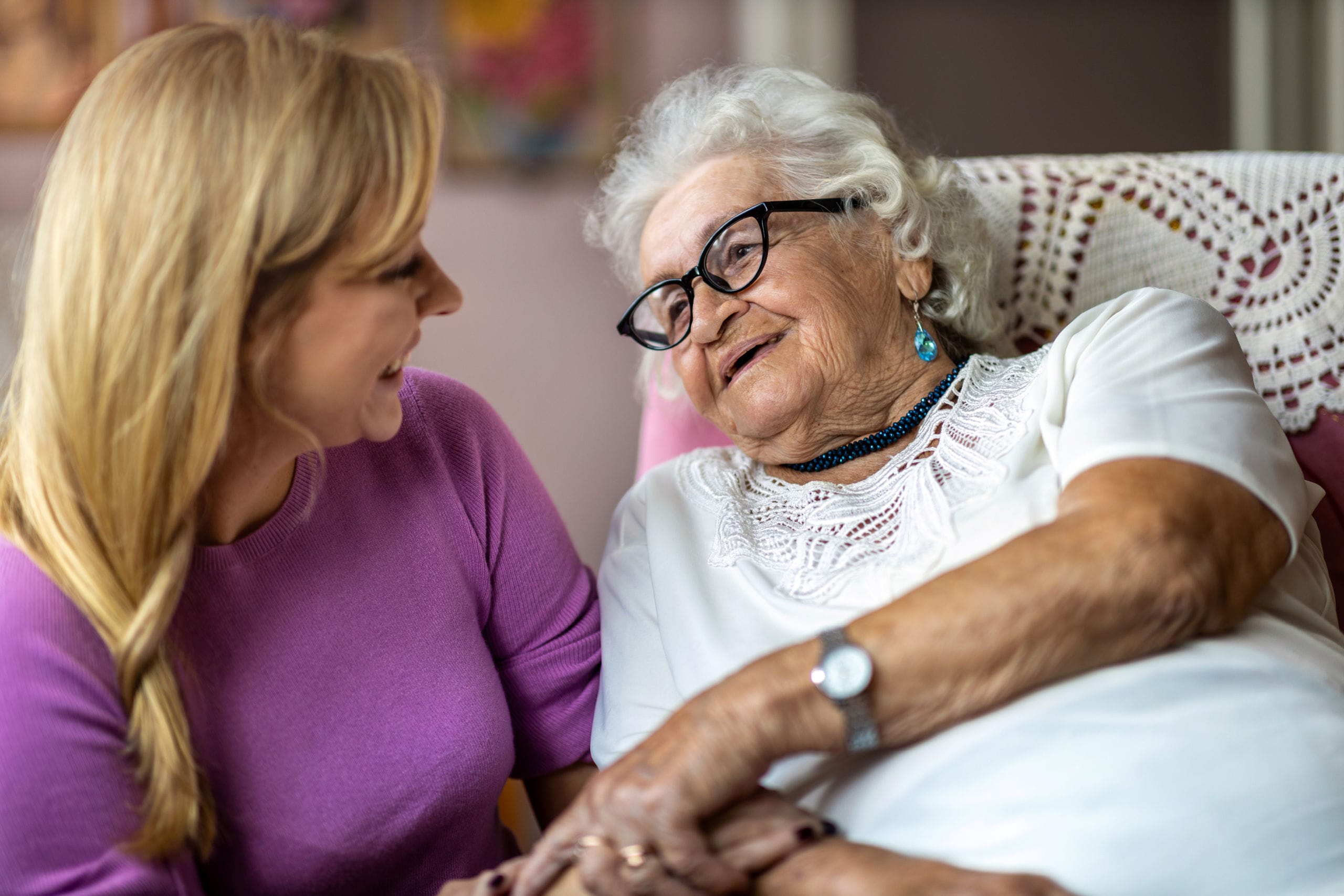Winter can be a wonderful time of year, with cosy evenings and crisp, fresh mornings. However, as temperatures drop, the season brings specific challenges for older adults.
According to a recent Age UK survey, over half of older people expressed concern about coping during the winter months. Given that so many older adults are worried about coping during winter, it’s essential to take proactive steps to keep your home warm, safe, and easy to navigate. With a bit of planning, you can feel more confident, ensuring a comfortable and secure winter while avoiding common seasonal hazards.
In this guide, we’ll take you through some simple, practical steps to help make your home ready for winter. We’ll cover ways to keep your house warm, stay safe from falls, and make your home comfortable and easy to move around as the days get shorter.
Heating and insulation tips
Keeping warm is essential for staying healthy during winter, and it starts with making sure your home heating is reliable. Before the cold weather sets in, have your heating system checked by a professional to ensure it’s working safely and efficiently. This includes boilers, radiators, or central heating systems.
Setting your thermostat between 18°C and 21°C is generally recommended to maintain a comfortable environment. To keep heating costs manageable, use draught excluders or heavy curtains to keep the warmth in and the cold out. Even small actions like adding rugs to bare floors can help insulate your home and reduce heating expenses.
We know that energy bills can be a concern, especially with rising costs. That’s why energy efficiency is crucial for keeping your home cosy without overspending. Keep doors closed in unused rooms to contain heat where it’s needed most. Every small effort contributes to a warmer, more energy-efficient home.
Fall prevention and mobility safety
Falls are one of the most common causes of injury for older adults, especially during winter. According to the NHS, around 1 in 3 adults over the age of 65 will experience at least one fall each year, and the risk increases in the colder months due to slippery surfaces and reduced daylight. However, simple precautions can greatly reduce this risk.
Winter weather can be unpredictable, with icy paths and wet leaves making outdoor areas hazardous. To stay safe, wear sturdy footwear with non-slip soles, and if you use a walking aid, make sure it has rubber tips for extra grip. Indoors, placing non-slip mats near doorways can prevent wet shoes from creating slippery floors, while decluttering hallways and staircases ensures clear walking paths.
Handrails on stairs and grab bars in bathrooms offer crucial support in high-risk areas. If mobility is a concern, gentle balance exercises like chair yoga or stretching can help you maintain stability and build confidence when moving around the house.
For more tips on fall prevention, watch our video with Jo Cleary, our Learning and Development Manager, where she shares easy ways to stay safe this winter.
Lighting adjustments as days get shorter
As days grow shorter, ensuring good lighting is crucial for preventing accidents. Indoors, make sure rooms are well-lit with bright, non-glare bulbs. Pay special attention to commonly used areas—such as hallways and the kitchen—by keeping them well-lit, especially in the evenings. Adding night lights in bathrooms or dark corridors can also make nighttime movements much safer.
Outdoors, installing motion sensor lights along paths or near entrances is a smart way to improve visibility and add an extra layer of security, providing peace of mind during those long winter nights.
Emergency preparedness for winter
Staying safe during winter isn’t just about keeping warm and preventing falls—it’s also about being prepared for unexpected situations. Make sure your carbon monoxide and smoke detectors are in good working order by testing them regularly and changing the batteries as needed.
Having an emergency kit ready can be invaluable, especially during winter. Keep a torch, extra batteries, blankets, and any necessary medications in an accessible spot. It’s also wise to have important contact numbers on hand, including those of family members, neighbours, and utility companies, to be prepared in case of power outages or other emergencies.
Encouragement and mental well-being
Winter can be a time when many of us feel a little more isolated. The colder weather and longer nights can make it harder to get out and about, which is why it’s important to stay connected. According to Age UK, more than a million older people say they go over a month without speaking to a friend, neighbour, or family member. Phone calls, video chats with loved ones, or even a friendly chat with a neighbour can help lift spirits. Hobbies like reading, puzzles, or knitting are great ways to keep your mind active and the winter blues at bay.
If you’re feeling lonely, don’t hesitate to reach out for support. There are local groups and organisations that offer befriending services or activities that might be of interest. Sometimes, simply knowing there’s someone there can make all the difference.
Stay safe this winter
A few small preparations can make a big difference when it comes to enjoying winter comfortably and safely. By making sure your home is warm, well-lit, and free of hazards, you can make this season a cosy and enjoyable time. Remember, it’s all about taking it step by step—every little change adds up to a safer, more comfortable winter.
Stay warm, stay safe, and take care this winter season!
Jo joined Unique Senior Care as a Carer in 2011, transitioning from a nursing background. With 25 years of experience in health and social care, including mental health and children with disabilities, Jo has embraced numerous growth opportunities within the company.
Passionate about learning and development, Jo earned a Level 5 Diploma in this field and is committed to equipping teams with the skills needed for outstanding care.
Jo’s qualifications include advanced training in people handling, risk assessment, safeguarding, basic life support, first aid, health and safety, and dementia care. Jo has also completed numerous workshops and CPD courses, such as the SCIE’s Co-Production webinar.
These accomplishments reflect Jo’s dedication to fostering a culture of safety and excellence in care.



